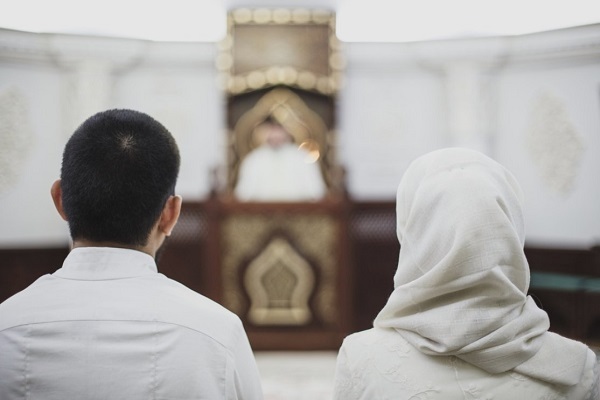AhlulBayt News Agency: One of the issues raised by feminist groups recently is one about how religions view man and woman.
How the Holy Quran views men and women and their rights is the same in most cases, including in creation, reward, rules, etc.
The Quran says man and woman were created from one origin, which is in contrast to what Jews believe, as they say woman was created from man’s left rib.
In some past religions, they believed that reward and punishment for men and women are not the same, saying, for example, that women will have half the reward that men will receive. But the Quran clearly rejects this.
If in some cases the Quran gives superiority to men, it gives advantages to women instead. For example, women receive Nafaqah (financial support a husband must provide for his wife).
Or if the Hizanah (the right to the custody of children) is given to men, it is actually a responsibility not a right. Of course a man can pass the responsibility to his wife.
The responsibilities that God has given men are very heavy and hard as a man has to work hard to be able to provide the Nafaqah for his wife and children.
In Hadiths, women have mostly been praised and men and women are considered equal.
The Holy Prophet (PBUH) in the hours before his demise underlined fulfilling women’s rights.
Imam Sadiq (AS) said most of those going to paradise are women and the oppressed.
We also have a Hadith according to which it would be enough for the destruction a man if he fails to fulfil the rights of his wife and children.
Imam Ali (AS) considered women to be entrusted to men.
It has also been underlined that men do not have the right to assault women and fathers have been urged to treat their daughters more emotionally than their sons.
/129
How the Holy Quran views men and women and their rights is the same in most cases, including in creation, reward, rules, etc.
The Quran says man and woman were created from one origin, which is in contrast to what Jews believe, as they say woman was created from man’s left rib.
In some past religions, they believed that reward and punishment for men and women are not the same, saying, for example, that women will have half the reward that men will receive. But the Quran clearly rejects this.
If in some cases the Quran gives superiority to men, it gives advantages to women instead. For example, women receive Nafaqah (financial support a husband must provide for his wife).
Or if the Hizanah (the right to the custody of children) is given to men, it is actually a responsibility not a right. Of course a man can pass the responsibility to his wife.
The responsibilities that God has given men are very heavy and hard as a man has to work hard to be able to provide the Nafaqah for his wife and children.
In Hadiths, women have mostly been praised and men and women are considered equal.
The Holy Prophet (PBUH) in the hours before his demise underlined fulfilling women’s rights.
Imam Sadiq (AS) said most of those going to paradise are women and the oppressed.
We also have a Hadith according to which it would be enough for the destruction a man if he fails to fulfil the rights of his wife and children.
Imam Ali (AS) considered women to be entrusted to men.
It has also been underlined that men do not have the right to assault women and fathers have been urged to treat their daughters more emotionally than their sons.
/129

